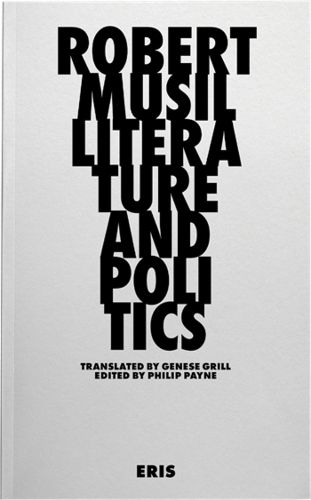Readings Newsletter
Become a Readings Member to make your shopping experience even easier.
Sign in or sign up for free!
You’re not far away from qualifying for FREE standard shipping within Australia
You’ve qualified for FREE standard shipping within Australia
The cart is loading…






"Politics is will and not truth. A very primitive formulation, but rich in consequences."
Robert Musil was keenly aware of literature's vulnerability to what he called "the over-reach and encroachment of politics", but he was also an acute observer of the ways in which literature and politics interact. Literature and Politics presents Musil's writings on the relationship between literature and politics from World War I through World War II and elucidates his personal struggle to bear witness during the Age of Totalitarianism.
In essays, addresses, aphorisms, and unpublished notes on current events, Musil charted the increasing dangers posed to artists and intellectuals by projects of ideological conscription, as well as the broader threats posed by nationalism and other extreme forms of collectivism. His political thinking was unfailingly supple and nuanced, but at its heart was a passionate belief in the rich and irreducible nature of individual creative work as the bulwark of a free, ethical, and pluralistic society. The main texts are translated by Genese Grill and Klaus Amann provides an invaluable Introduction to Musil's political thought, while Philip Payne introduces Musil's "On Stupidity" (which he has also translated into English).
$9.00 standard shipping within Australia
FREE standard shipping within Australia for orders over $100.00
Express & International shipping calculated at checkout
"Politics is will and not truth. A very primitive formulation, but rich in consequences."
Robert Musil was keenly aware of literature's vulnerability to what he called "the over-reach and encroachment of politics", but he was also an acute observer of the ways in which literature and politics interact. Literature and Politics presents Musil's writings on the relationship between literature and politics from World War I through World War II and elucidates his personal struggle to bear witness during the Age of Totalitarianism.
In essays, addresses, aphorisms, and unpublished notes on current events, Musil charted the increasing dangers posed to artists and intellectuals by projects of ideological conscription, as well as the broader threats posed by nationalism and other extreme forms of collectivism. His political thinking was unfailingly supple and nuanced, but at its heart was a passionate belief in the rich and irreducible nature of individual creative work as the bulwark of a free, ethical, and pluralistic society. The main texts are translated by Genese Grill and Klaus Amann provides an invaluable Introduction to Musil's political thought, while Philip Payne introduces Musil's "On Stupidity" (which he has also translated into English).